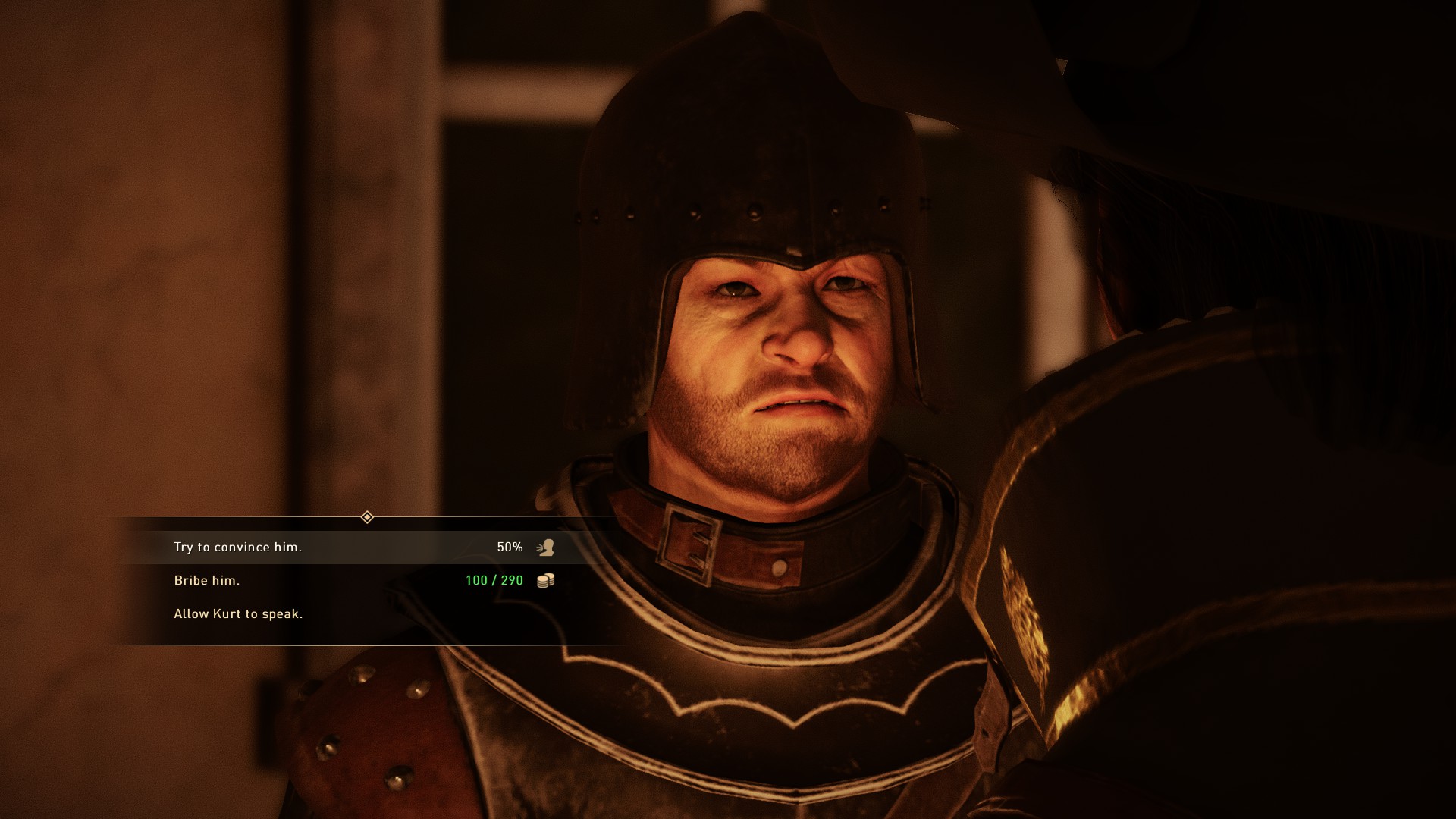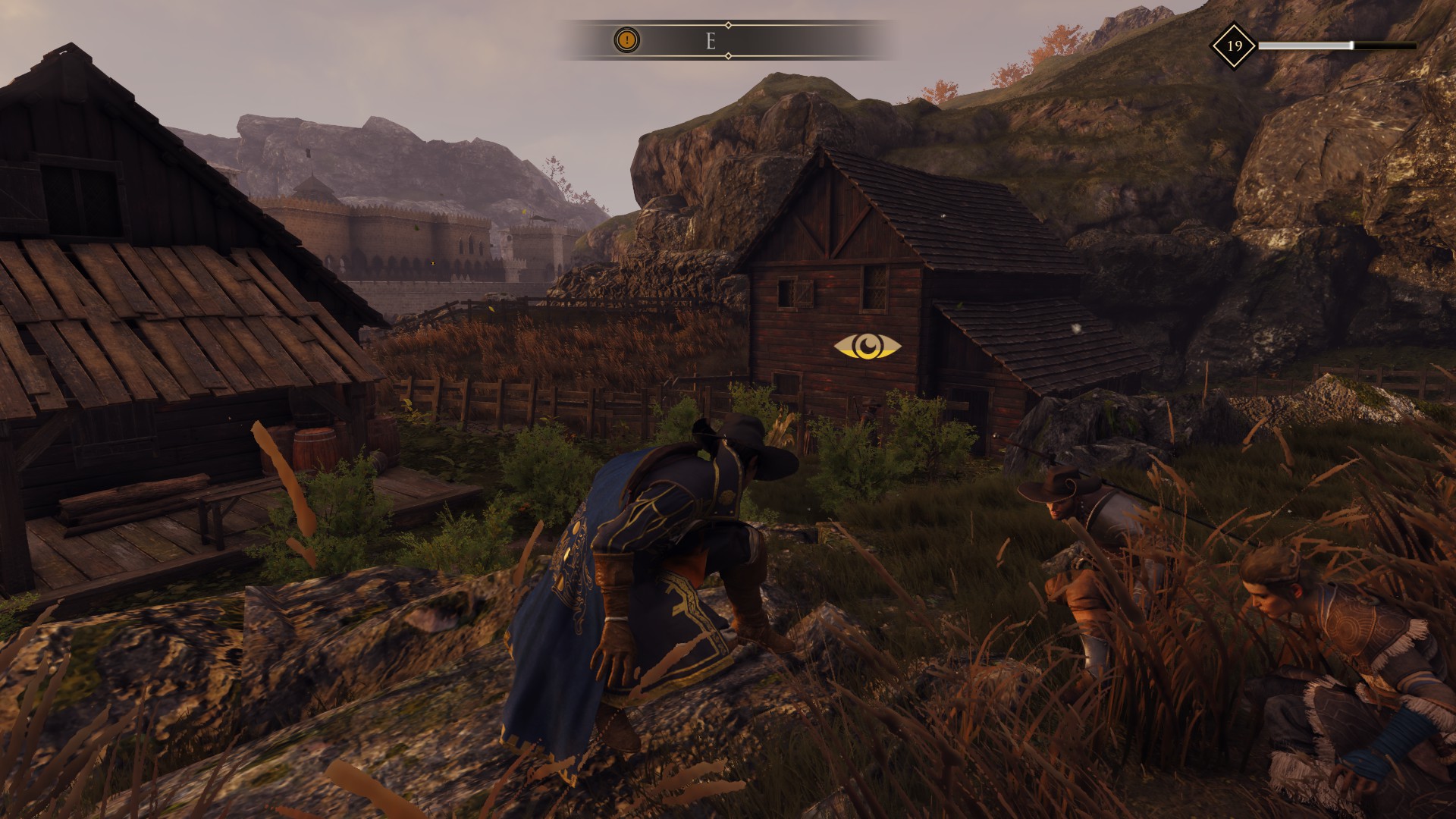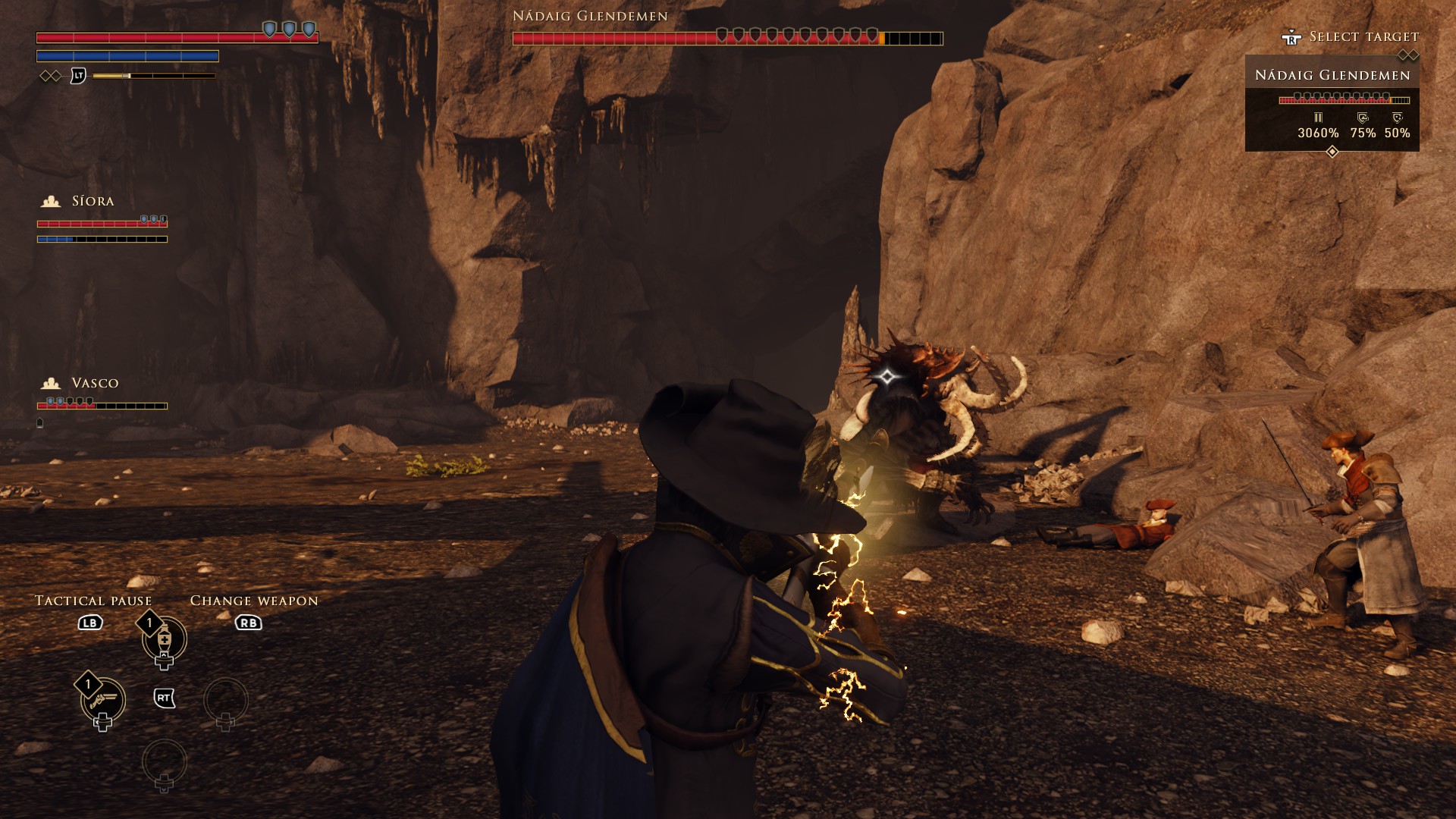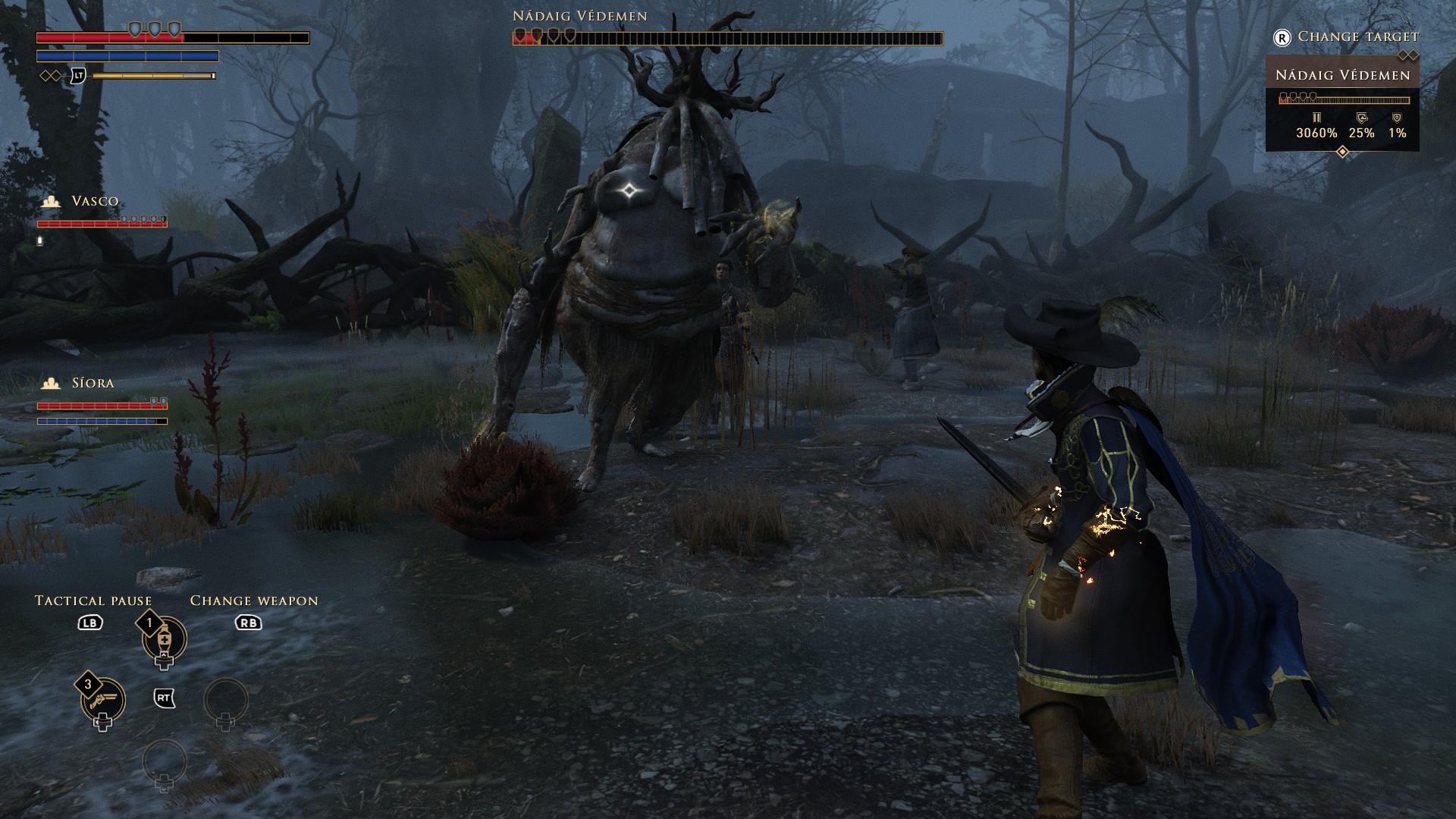Our Verdict
GreedFall's combat, dialogue, and romance are overshadowed by better RPGs, but it's competent enough to recommend with caveats.
PC Gamer's got your back
What is it? An action combat, dialogue-heavy RPG set in a fantasy colonial era
Reviewed on: Windows 10, intel i7 8700k, 16GB RAM, NVIDIA GeForce GTX 970
Price: $50/£44
Release date: Out Now
Publisher: Focus Home Interactive
Developer: Spiders
Multiplayer: None
Link: Official site
GreedFall's systems parrot those of successful RPGs, but they're all a bit thin. It has a tactical pause system that lets me queue up an action for my protagonist, but not other party members. I can assign armor and weapons to my party members, but not manage their skills or combat tactics. I can pursue a romance with my companions, but it takes the form of three personal quests followed by the makeout-time dialogue button and a quick bedroom cutscene. GreedFall contains all the things I like in RPGs. I wish that I could pick even one of them to praise without caveats.
In one bit, I'm interviewing a grizzled member of the mercenary faction, the Coin Guard, as I investigate the disappearance of a talented young soldier. Sweet-talking and browbeating people with my title is a large part of my job as the ambassador of my own faction: the Congregation of Merchants. To drag information about a secret training program out of him I choose between three dialogue choices: convince him with my charisma, bribe him, or allow my companion, Kurt, to do the talking. I've invested my attribute points in charisma, so I'm able to persuade him.

I like that I have multiple options in each interaction, but as always in GreedFall, something is a little off: His mildly uncanny lip movements are a distraction shared by many of GreedFall's characters, and the quality of the voice acting varies, with one of my favorite merchants constantly belting his lines out.
Later, I'm breaking my way into a Coin Guard training camp to further investigate. Kurt requests that we avoid combat so that we won't have to kill any members of his faction. GreedFall's stealth system is bare bones, composed only of my ability to crouch and eye indicators over enemies' heads that begin to fill with yellow if I'm close to being seen. I don't know what objects provide reliable cover or have any indication of my enemies' lines of sight. I have to reload twice to infiltrate the camp totally unseen because I don't want to make Kurt sad.

Roll for imitation
If one of GreedFall's systems deserves a callout, it's the ability to approach most of its quests with a mixture of stealth, disguise, charisma, and force. If I've chosen to invest talent points in science, I may be able to bomb a hole in the basement of a warehouse to gain entry, or I could talk my way in with charisma, or stroll in unquestioned by wearing the armor of the faction whose space I'm invading. Even if they're not difficult to decipher (my companions often eagerly give away all the possible solutions to the situation as we approach), I did enjoy weighing the possible effects each choice might have on my relationships with companions and factions.
When it comes to blows, combat is divided into the standard strength, agility, and magic modes of attack, while weapon choices are setting-appropriate things like rapiers, maces, and rifles. I created a build focused on agility for dealing out high damage with one-handed weapons and accuracy with firearms. My usual two party members: Siora the native mage and Vasco the ship captain, supported me well with healing and ranged attacks, but at around level ten I hoped to micromanage their skills a bit, which GreedFall weirdly doesn't allow for.

Kicking enemies in the rear quickly became the cornerstone of my combat choreography.
Despite its simplicity, GreedFall's combat does encourage a sort of rhythm. Executing standard light strikes builds up my "fury" meter which can then be spent on heavier strikes. For large groups of enemies I place down a couple area of effect traps, use my rifle to lock on and take out those closest to death, and then begin weaving together light and fury attacks.
A few larger bestial enemies have area of effect attacks or charge forward to knock me off my feet, but the vast majority of animals lunge forward at my party without finesse. The occasional human group of enemies mix swordplay with rifles. I'm not able to entirely mow through enemies on the normal difficulty level, but very few challenge me to alter my quickly-established routine.
What I found myself doing most was kicking my enemies. A swift kick has the potential to stagger an enemy and also chips away at their armor which, when entirely depleted, makes them much easier to take down with physical strikes. GreedFall's combat is not particularly exciting, but I enjoyed that kicking enemies in the rear quickly became the cornerstone of my combat choreography.

Storybored
The overarching narrative concerns colonists of the four main factions all seeking a cure for the fatal "malichor" disease and abusing the native people of Teer Fradee in search of it. The Bridge Alliance (scientists) and Theleme (the church) are constantly at war, and exploit the native people as either test subjects or converts.
It's a decent RPG, but not the new darling of the genre by any stretch.
There are moments when GreedFall takes on a self-important kind of sympathy, portraying the native people as simple and superstitious, initially violent only because they're frightened. Add to that the over-acted accents of every native character and you get a clumsy portrayal of a colonized society. GreedFall acknowledges that all this is terrible, but only with overt displays of evil that fail to say anything about systems of oppression beyond noting their existence.
As a distraction from the horrors, you can make a move on one of your companions, but the whole thing is quite dry. Three of my five companions are romanceable as a woman: ship captain Vasco, mercenary Kurt, and native island princess Siora (feisty scientist Aphra called me "not her type"). Completing side quests for each will increase our relationship from "suspicious" to "friendly" until I'm able to make bedroom eyes at my chosen paramour. Both the verbal overtures of love and the sexy cutscenes are serviceable rather than spicy. I mostly found them to be boxes to check in GreedFall, and rather than feeling drawn into the story, a talent bonus and a Steam achievement are my most lasting memories of those stolen nights of passion.

Where GreedFall's story does shine is in the cinematic cutscenes marking pivotal story moments, which bring the drama and gravitas that I wish its romances enjoyed. As its story climaxes, these emotional scenes grow closer together, as do the consequences of decisions I've made in earlier quests. GreedFall catches its stride in the last several hours, nearly enough to make me forget the first thirty hours that were so decidedly average.
GreedFall is not the heir to the Dragon Age throne, but it is, in a word, adequate. Rather than planting its flag in one truly standout, unique system, it spreads itself thin across all of the systems one might expect from a Dragon Age-type game. If Dragon Age is a veteran gone on sabbatical, GreedFall is keeping its seat warm without making a mess of the office in its absence. It's a decent RPG, but not the new darling of the genre by any stretch.
GreedFall's combat, dialogue, and romance are overshadowed by better RPGs, but it's competent enough to recommend with caveats.

Lauren has been writing for PC Gamer since she went hunting for the cryptid Dark Souls fashion police in 2017. She accepted her role as Associate Editor in 2021, now serving as self-appointed chief cozy games and farmlife sim enjoyer. Her career originally began in game development and she remains fascinated by how games tick in the modding and speedrunning scenes. She likes long fantasy books, longer RPGs, can't stop playing co-op survival crafting games, and has spent a number of hours she refuses to count building houses in The Sims games for over 20 years.


